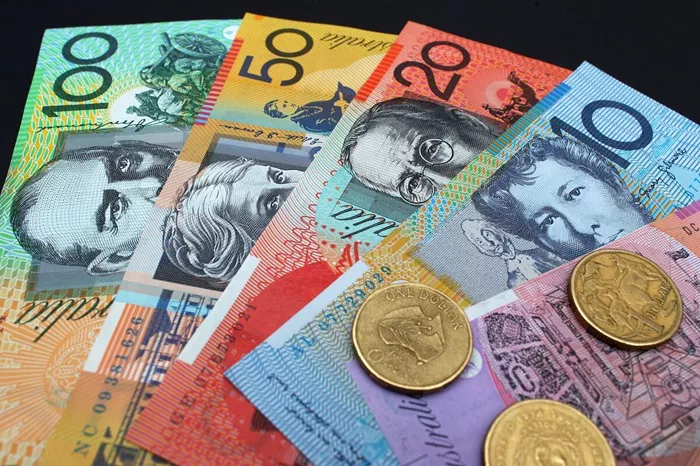The Australian dollar has hit near-pandemic lows, significantly impacting the cost of holidays and weddings in Greece for Greek Australians. The sharp decline in the AUD, primarily triggered by global economic instability stemming from U.S. tariffs, has made travel and goods from Greece substantially more expensive.
Currency Impact
The Australian dollar has lost considerable value against the euro in recent months. On Wednesday, April 9, the exchange rate stood at 1.85 AUD to 1 euro, up from 1.60 AUD to 1 euro just five months ago. As a result, for Greek Australians converting their dollars to euros, this translates to a significant reduction in purchasing power, with 1 AUD now buying only 0.54 euros — down from 0.63 euros last November.
This shift marks a return to levels similar to the economic downturns of the 2008 financial crisis and the early days of the COVID-19 pandemic, when the AUD was worth 0.49–0.50 euros. Over the past year, the AUD has fallen by approximately 10 percent against the euro, with the majority of that drop occurring since February, following the announcement of new U.S. tariffs.
Implications for Travel and Weddings
The weakened currency has already begun to affect Australian travelers heading to Greece. Weddings, in particular, are bearing the brunt of the exchange rate fluctuations. Couples planning weddings in Greece this year have reported price increases of around 8 percent within just a week of the tariff announcement. While the tariffs themselves do not directly impact service costs, the economic uncertainty they create has led to a weaker AUD, driving up the price of services and goods denominated in euros.
For example, a couple planning a wedding in Greece for September is now facing an additional cost of nearly $5,000 due to the exchange rate shift. Other expenses, such as accommodation, car rentals, and excursions, are also becoming more costly for those planning to visit Greece.
Reduced Spending on Travel
The decline in the value of the AUD has already led to a noticeable reduction in the spending of Australian tourists in Greece. Data from the Bank of Greece shows that, in 2024, the average Australian traveler spent approximately 1,068.5 euros ($1,800) per trip, down from 1,594.4 euros ($2,700) in 2023. The average daily spending also dropped, from 131.9 euros per day in 2023 to 92.4 euros in 2024. This shift reflects the broader economic pressure faced by Australian travelers due to the lower exchange rate and the ongoing cost-of-living crisis in Australia.
Impact on Other Imports and Services
The broader effects of the AUD’s depreciation extend beyond travel. Goods imported into Australia, such as fuel, are becoming more expensive, as prices are set in U.S. dollars. The AUD’s recent weakness against the U.S. dollar has seen it drop to a five-year low, with one Australian dollar worth just 0.60 USD.
Additionally, Australians’ superannuation balances have been affected by the global market instability, although experts have urged caution, advising members not to panic in response to short-term declines. The Superannuation Members Council has emphasized that superannuation is a long-term investment, and while market declines may impact balances in the short term, they are unlikely to have significant long-term effects.
Government Response and Economic Outlook
The Australian government has acknowledged the impact of these global economic disruptions. Federal Treasurer Jim Chalmers stated that the country is well-positioned to weather the storm, despite predictions of a slight decline in GDP and an increase in inflation due to the ongoing trade tensions. Prime Minister Anthony Albanese also expressed concern over the market downturn, noting its impact on Australians’ superannuation funds.
Opposition Leader Peter Dutton has criticized the current government’s handling of the economy, arguing that the Coalition’s track record shows they are better equipped to manage global economic shocks, referencing the economic recovery after the September 11 attacks and the COVID-19 pandemic.
Conclusion
The ongoing global economic uncertainty, fueled by U.S. trade policies, has had far-reaching consequences for Australians, particularly those planning to travel to Greece or arrange significant life events such as weddings. While many travelers may still go ahead with their plans, they will face higher costs due to the weakened Australian dollar and the increased price of goods and services in Europe. As the economic situation continues to evolve, Australians are advised to closely monitor currency fluctuations and adjust their travel and spending plans accordingly.

